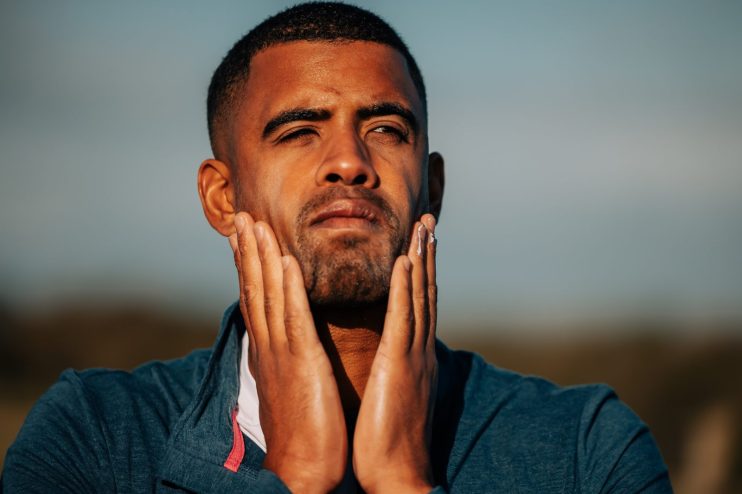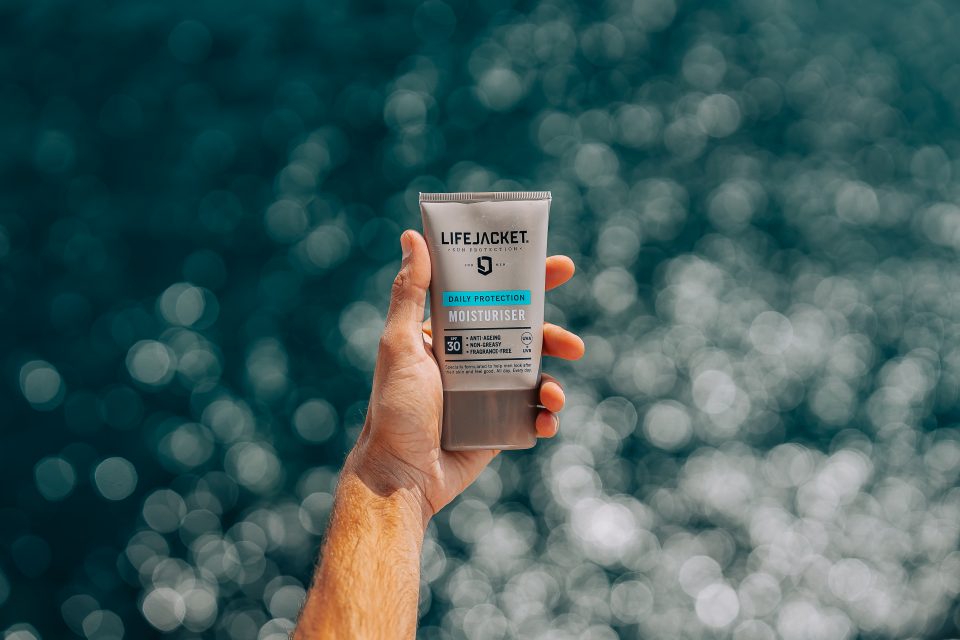Men are twice as likely to develop skin cancer: LifeJacket is here to help

No doubt many of you were enjoying the sun this weekend, and many more will be out and about celebrating the taste of freedom granted today by the loosening of Covid restrictions. And while we all know in theory the dangers of sun damage, putting that knowledge into practice is often a step too far.
It’s an attitude I can understand. I grew up in love with the sun. From my early teens, having a tan was the sign of a great summer. Sunscreen was reserved exclusively for the annual summer holiday and was never a consideration in the UK, even on the hottest days. Home or away, sunburn was an inevitability each year and the mantra of ‘it will turn into a tan’ was the science we lived by.
As a child of the 80s, I suspect this all sounds pretty familiar to fellow 40-plus-year-olds. But in my 30s, things changed. During that time, Jono, my greatest friend in life was diagnosed with bowel cancer and four other close, male friends experienced other forms of cancer. All of them were young, fit and healthy men who thought they were indestructible. It was my first true realisation that cancer can affect anybody, at any age, irrespective of how healthy they are. Many people already know this all too well, I guess.
While visiting Jono undergo chemotherapy, we became shocked by what we learned about skin cancer, specifically. Skin cancer is one of the most prevalent cancers – in the US, one in five people will get skin cancer by the age of 70.

Unlike most cancers, skin cancer is relatively ‘controllable’. According to Cancer Research UK and the Melanoma Research Foundation, 90 per cent of melanomas can be prevented. That’s because 90 per cent of melanoma skin cancers are caused by ultraviolet (UV) light.
UV is an invisible form of radiation emitted by the sun (and tanning beds). UVA in particular reaches our skin every single day and in equal measure throughout the year. It even goes through glass. Winter or summer, cloudy or clear, UV causes a range of skin damage from wrinkles through to skin cancer. UVB is the wavelength that peaks in summer and troughs during winter, across the northern hemisphere. Culturally (and unconsciously), we only think of UVB because this is what causes sunburn. However, UVA is 95% of the UV that reaches earth and it’s ever-present and silently damaging the deeper layers of our skin.
In the end, the discovery that truly emboldened us was the fact that almost two men die of skin cancer for every woman. This statistic is true across much of Europe, including the UK, but also Australasia and North America. As a data point, it’s rarely spoken about and the World Health Organisation predicts male skin cancer incidence will double over the next 20 years.
The reason for the disparity is hardly surprising. Men aren’t good at checking their skin and often ignore abnormalities, leaving things too long. Secondly, when it comes to prevention, most men could be better at everyday skin protection.
Women have been told by Vogue et al over the past 30 years that UV light not only causes skin cancer but it’s also 80 per cent of the cause for premature skin ageing, while men have been ignored by mainstream media and left behind by brands. And so, we decided to become the first high-performance skin protection brand for men.
At LifeJacket we design products around men’s needs and pain points. We make everyday SPF skincare that isn’t thick, heavy or greasy. We make sun-proof clothing for men who don’t want to wear skincare. We make portable and pocket-friendly packaging because men often don’t have space to carry larger products. And everything is direct-to-consumer and designed to fit through a letterbox.
Developed over three years with industry experts and the latest ingredient technology, LifeJacket products are now used by everyone from office workers to professional athletes to Olympians, designed around the issues the men we spoke to had with traditional sun protection products (working around body hair, portability and perfume, for instance).
LifeJacket takes detection as seriously as protection: we have formed partnerships with organisations including Melanoma UK and have worked with the British Skin Foundation. In addition, every customer who buys via our website gets free 7-day unlimited access to SkinVision, a phone app you use to take photos of moles and marks on your skin. Using artificial intelligence to compare skin spots and moles with millions of images of known skin cancers, the app then gives you an immediate risk score to help detect problem areas at an early stage and advises if you should seek professional help.
Jono, his brother and I have a founder-mission to stop men getting skin cancer. It’s a long-term project – we think it will take men a decade just to catch up to women in terms of awareness.
When I look out of the window on a day like today, I still love the sun. Only today I know that just five sunburns over a lifetime doubles your chances of developing skin cancer. Get out there and have fun, but make sure you protect yourself.
• For more information visit the LifeJacket website here.